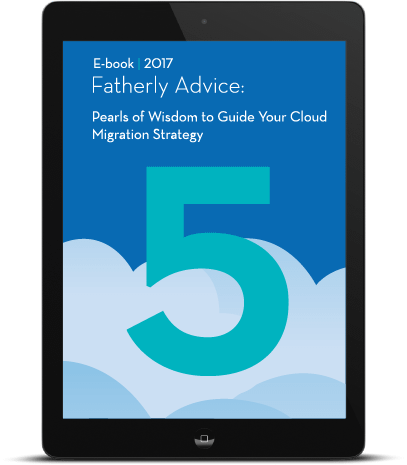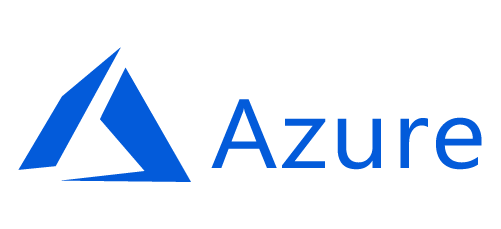Modern Cloud Monitoring & AIOps for All Environments
Eliminate performance issues and manage cloud service costs across Google Cloud Platform, Amazon Web Services, Microsoft Azure, OpenStack as well as on-prem resources — including those spanning multicloud and on-prem environments. Enable cloud mobility across the entire ecosystem to ensure your IT services are always optimized with the right deployment balance.
Cloud Monitoring With Zenoss
- Dynamically discover topology for all IT services.
- Effortlessly perform root-cause analysis to identify, address and prevent issues.
- Optimize your cloud performance with data and metrics collected from hybrid cloud monitoring.
Cloud Monitoring
With Zenoss
- Dynamically discover topology for all IT services.
- Effortlessly perform root-cause analysis to identify, address and prevent issues.
- Optimize your cloud performance with data and metrics collected from hybrid cloud monitoring.
Public Cloud Monitoring
You can monitor end-to-end services across all major public cloud platforms, including Google Cloud Platform (GCP), Amazon Web Services (AWS), Microsoft Azure and more. With a Zenoss cloud monitoring solution, you can track and analyze data for cloud entities, like regions, zones and instances.
Visualization features offer a clear view of how failures in individual cloud infrastructure components impact application performance — all from a centralized dashboard view.
Private Cloud Monitoring
Zenoss monitors all major private cloud platforms, including OpenStack, Apache CloudStack, VMware, vCloud Director and more. The multitenant architecture provides cloud monitoring capabilities and cross-platform visibility, allowing each tenant to monitor the performance and availability of their private cloud services.
Multicloud Monitoring
As multicloud environments become increasingly pervasive, organizations need cross-cloud visibility to determine whether all on-prem and cloud resources are performing optimally, especially IT services spanning multiple cloud environments.
With Zenoss, you can visualize and contextualize metrics on cloud performance for end-to-end IT services. This enables you to identify and prevent any performance issue as it happens — before it impacts your business or the user experience.
Hybrid IT Monitoring for Any On-Prem or Cloud Environment
- Automate hybrid IT monitoring and AIOPs for your entire IT universe — on-prem and across every cloud environment — from a unified monitoring platform.
- Visualize the full context when managing multiple clouds, ephemeral systems and cloud applications with a single dashboard.
- Increase agility by seamlessly managing workloads anywhere — whether you're on a private cloud, public cloud or in an on-prem data center.

Cloud Mobility
for Hybrid IT Environments
Innovative IT leaders have moved beyond simply leveraging the cloud environment — they're now focusing on hybrid cloud monitoring tools to help transfer workloads seamlessly across environments and understand when to do so.
Cloud mobility has become a top priority — enabling you to not only move workloads between multiple cloud environments but also from on-prem to cloud and vice versa. This means you can seamlessly migrate workloads between physical data centers to and from your public, private and multicloud environments without disruptions.
A significant challenge in enabling this frictionless mobility is understanding system interdependencies and having a clear view of all systems that constitute an IT service before, during and after a cloud migration occurs.
To simplify cloud mobility, organizations must ensure the feasibility and benefits of moving systems to, from or between hybrid cloud environments. The ideal way to do this is by managing public and private cloud infrastructure along with on-prem deployments from a centralized platform. This enables quick and effective workload transitions while ensuring consistent service delivery across on-prem and cloud systems.
A unified view can also help identify redundant equipment and eliminate the costs of repairing unnecessary systems before migrations occur — all while introducing new levels of redundancy and scalability during cloud migration — reducing operational costs.
Combining intelligent hybrid cloud monitoring and AIOps capabilities can derive much-needed context — an ingredient that has proven to be paramount in enabling efficient cloud mobility with minimized risk.
When data collection and analysis are ubiquitous, it can result in vital improvements to IT efficiency while simultaneously lowering costs and mitigating risks. Innovative organizations are focusing their monitoring and analytics approach to develop this elusive context.
Cloud Mobility
for Hybrid IT Environments
Innovative IT leaders have moved beyond simply leveraging the cloud environment — they're now focusing on hybrid cloud monitoring tools to help transfer workloads seamlessly across environments and understand when to do so.
Cloud mobility has become a top priority — enabling you to not only move workloads between multiple cloud environments but also from on-prem to cloud and vice versa. This means you can seamlessly migrate workloads between physical data centers to and from your public, private and multicloud environments without disruptions.
A significant challenge in enabling this frictionless mobility is understanding system interdependencies and having a clear view of all systems that constitute an IT service before, during and after a cloud migration occurs.
To simplify cloud mobility, organizations must ensure the feasibility and benefits of moving systems to, from or between hybrid cloud environments. The ideal way to do this is by managing public and private cloud infrastructure along with on-prem deployments from a centralized platform. This enables quick and effective workload transitions while ensuring consistent service delivery across on-prem and cloud systems.
A unified view can also help identify redundant equipment and eliminate the costs of repairing unnecessary systems before migrations occur — all while introducing new levels of redundancy and scalability during cloud migration — reducing operational costs.
Combining intelligent hybrid cloud monitoring and AIOps capabilities can derive much-needed context — an ingredient that has proven to be paramount in enabling efficient cloud mobility with minimized risk.
When data collection and analysis are ubiquitous, it can result in vital improvements to IT efficiency while simultaneously lowering costs and mitigating risks. Innovative organizations are focusing their monitoring and analytics approach to develop this elusive context.
Learn more about cloud monitoring with Zenoss. GET A DEMO
Featured Cloud Resource Monitoring Technologies
Enabling IT to Move at the Speed of Business
Zenoss is built for modern IT infrastructures. Let's discuss how we can work together.
Schedule a Demo
Want to see us in action? Schedule a demo today.


